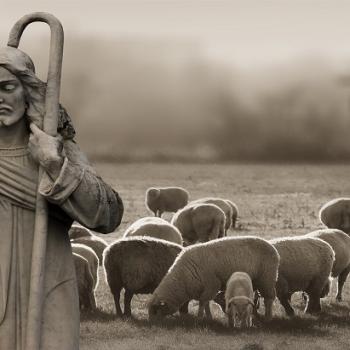One of my favorite Bible stories is the recounting of Jesus resurrecting His friend Lazarus. In the weeks leading up to Easter, I wanted to do an article examining how their story is an analogy for God’s compassion. Another reason I wanted to do an article on this story is because of the poignant verse, “Jesus wept” (John 11:35).
Backstory
The story of Jesus and Lazarus is found in the 11th chapter of the Gospel of John. Lazarus is the brother of Mary and Martha, the two sisters who appeared together in the Gospel of Luke.
When the story of Lazarus begins, the Gospel of John notes that his sister Mary is the same woman from Luke 7:36-50. She’s the woman who knelt by Jesus’ side, washed His feet with her tears, used her hair to clean his feet, and anointed them with expensive perfume.
Mary and Martha send a messenger to Jesus to let Him know that Lazarus has fallen seriously ill. Jesus knows that Lazarus is meant to play a unique role for the glory of God and remains with His disciples for 2 days.
After the 2 days have passed, Jesus tells His disciples that they’re returning to Judea. The disciples object to this because the people of Judea had previously wanted to stone Him.
Before they depart for Bethany, the town where Mary, Martha, and Lazarus live, Jesus tells His disciples the truth. He knows that Lazarus has passed away, but He will “awaken him” (John 11:11). Thomas, one of the disciples, tells the others that they should follow Jesus and “die with Him” (John 11:16). This remark most likely meant that Thomas believed that Jesus risked death at the hands of His opponents while in Bethany.
Arrival at Bethany
Martha and Mary are grieving the loss of Lazarus when Jesus and His disciples arrive just outside Bethany. Martha finds out that Jesus is near and goes to speak with Him. She mournfully tells Him, “Lord, if you had been here, my brother would not have died” (John 11:21).
Jesus speaks words of comfort and affirmation to Martha. He tells her that Lazarus will rise (John 11: 23) and then says this to her:
“I am the resurrection and the life. Whoever believes in me, though he die, yet shall he live, and everyone who lives and believes in me shall never die. Do you believe this?” (John 11:25-26)
This is a poignant foreshadowing that Jesus came to destroy Death.
Martha goes home and tells her sister Mary that Jesus wants to speak with her. Mary runs to Him, followed by the people who had come to comfort the two sisters. The text notes that “she fell at His feet” (John 11: 32), referring to when she first knelt and cleaned his feet in Luke 7:36-50.
Collapsing in grief in front of Jesus, Mary repeats her sister’s words. Jesus listens with compassion as Mary likewise says to Him, “Lord, if you had been here, my brother would not have died” (John 11:32).
Thus follows one of the most touching scenes in the Bible.
https://youtu.be/9HyAkSpTaQU
Jesus Weeps
In John 11:33, the text states that Jesus was “deeply moved in His spirit and greatly troubled”. He felt deep empathy for everybody mourning Lazarus, mixed with anger over the anguish caused by death. God feels our grief over death, especially because, as this author said, humans weren’t made to die.
The story of Jesus and Lazarus reminds me of one of my favorite Bible verses, Matthew 5:4. “Blessed are those who mourn, for they will be comforted” has helped me pull through many seasons of grief. I found this YouTube video that offers a dual explanation for this verse:
As the speaker says in his video, “mourning” in Matthew 5:4 can refer to grief over loss and sin, which causes death. This calls to mind this verse from Romans:
“For the wages of sin is death, but the free gift of God is eternal life in Christ Jesus our Lord.” (Romans 6:23)
This is part of why Jesus weeps in John 11:35. Not only did He weep for the pain the people around him were suffering, but He also wept in anger over death, the result of sin.
Jesus Triumphs Over Death
As Martha, Mary, and the others lead Jesus to Lazarus’ tomb, some of the mourners discuss Jesus’ tears amongst themselves. To them, while they don’t understand why He didn’t stop Lazarus from dying, His tears make it clear that He loved Lazarus deeply.
They all arrive at the tomb, and Jesus asks the people to remove the stone blocking the entrance. While Martha objects, telling Him that there will be a foul smell (John 11: 39), Jesus reminds her of His promise that she would see God’s glory.
Once the stone is removed from the entrance, Jesus says a prayer to God the Father (John 11:41-42). Jesus thanks His Heavenly Father for always listening to His Son and helping the people around Him see that their Messiah had come.
With that, Jesus calls for Lazarus to come out of his tomb. To the shock and joy of the mourners, Lazarus obliges, stepping back into life and confirming that Jesus is the Son of God.
Death Itself Will Die
Rereading this story helped me further understand why Jesus laid down His life on the Cross. He came to defeat Death and break the cycle that began with Adam.
“For if, because of one man’s trespass, death reigned through that one man, much more will those who receive the abundance of grace and the free gift of righteousness reign in life through the one man Jesus Christ.” (Romans 5:17)
I remembered the hymn “O Death, Where Is Thy Sting?” when I started brainstorming for this article. I found the titular verse in 1 Corinthians 15:55, along with multiple connecting verses throughout the Bible (Bible Hub is a great study tool!).
“O death, where is your victory? O death, where is your sting?” (1 Corinthians 15:55)
Here are some connecting verses to this one that I found on Bible Hub:
- “The last enemy to be destroyed is death.” (1 Corinthians 15:26)
- “…and which now has been manifested through the appearing of our Savior Christ Jesus, who abolished death and brought life and immortality to light through the gospel…” (2 Timothy 1:10)
- “Then death and the grave were thrown into the lake of fire. This lake of fire is the second death.” (Revelation 20:14)
- “He will swallow up death forever; and the Lord GOD will wipe away tears from all faces, and the reproach of His people He will take away from all the earth, for the LORD has spoken.” (Isaiah 25:8)
And then, one of my favorite verses of all time:
“He will wipe away every tear from their eyes, and death shall be no more, neither shall there be mourning, nor crying, nor pain anymore, for the former things have passed away.” (Revelation 21:4)
Death has lost, and our grief won’t last forever.
Featured Image by dodo71/Pixabay
Hello, and thank you for supporting my work here on Patheos! If you’d like to support me further, please feel free to “Buy Me A Coffee” here:












